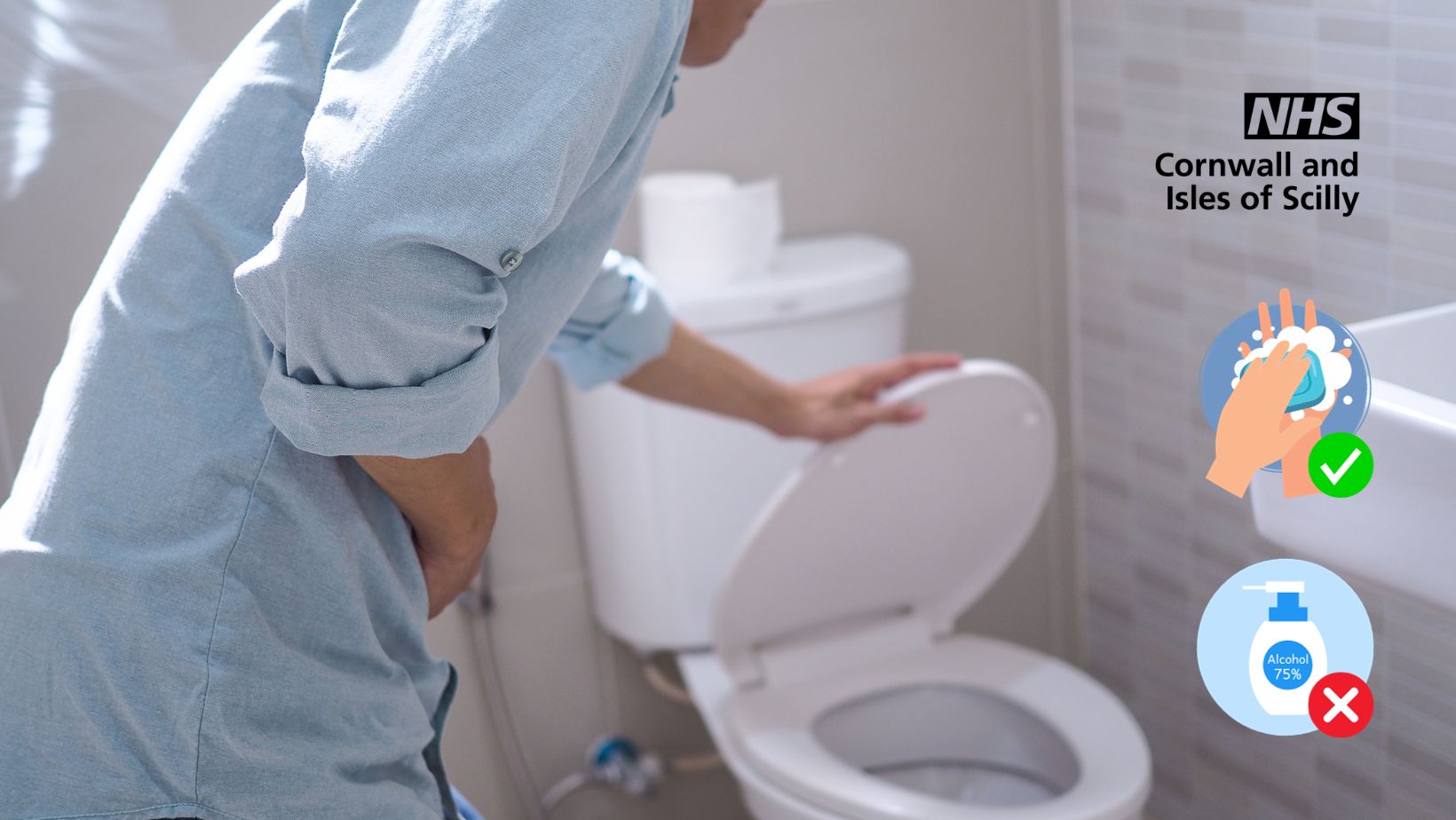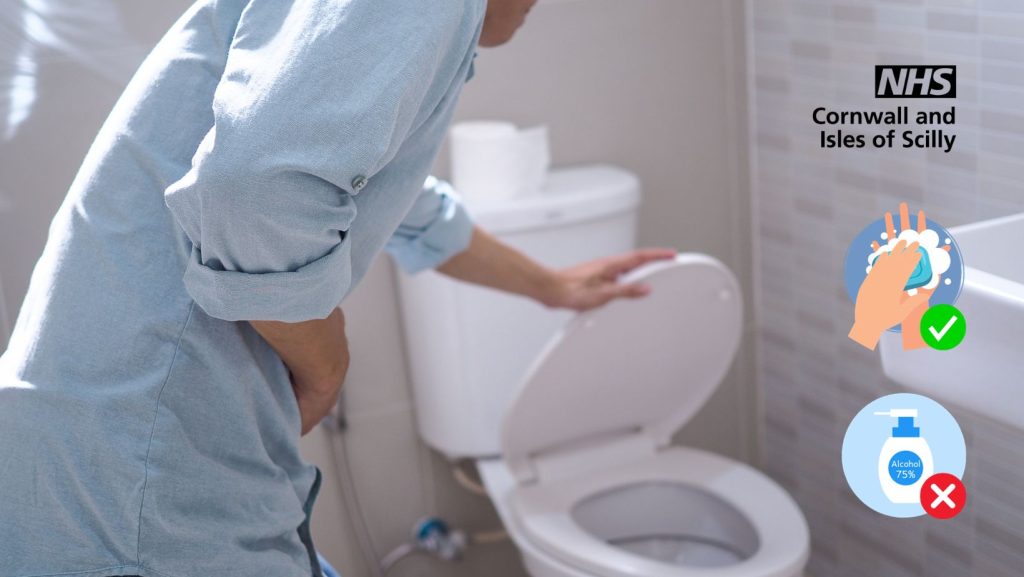Norovirus cases on the rise in Cornwall, look after yourself, protect others


The common winter vomiting bug, Norovirus, is doing the rounds in Cornwall, and our NHS is asking for your help to stop the spread.
People with symptoms are being urged to stay at home and, if needed, seek advice from the NHS online or to get a relative or friend to pop along to a pharmacy for you.
Dr Chris Reid, Chief Medical Officer for NHS Cornwall, and Isles of Scilly ICB, said:
“Norovirus is very contagious, so if you have symptoms please stay at home.
People in hospitals and care homes are more vulnerable to norovirus, so it is particularly important not to visit hospitals and other health and care settings if you have vomiting or diarrhoea.
If you have symptoms and you are due to attend a GP or outpatient appointment, please contact the clinic before setting off from home, as it may be possible to have the consult over the phone, online or we can reschedule. The most important thing you can do to prevent spread is to wash your hands regularly with soap and warm water. Alcohol hand gels do not kill norovirus.”
As often happens when Norovirus is circulating in the community it is also affecting some wards at hospitals, which means you may not be able to visit some people in hospital unless there are special circumstances. Please ring the ward before setting out to check the current arrangements.
Although norovirus is unpleasant, for most people it usually passes in a couple of days. The main symptoms are feeling sick (nausea), diarrhoea and being sick (vomiting). You may also have a high temperature, headache or aching arms and legs. The symptoms start suddenly within 1 to 2 days of being infected.
You can usually treat yourself or your child at home. It is important to rest and drink lots of fluids to avoid dehydration. Stay off school or work until you have not been sick or had diarrhoea for at least 2 days.
Read more advice and information about norovirus on the NHS website.

